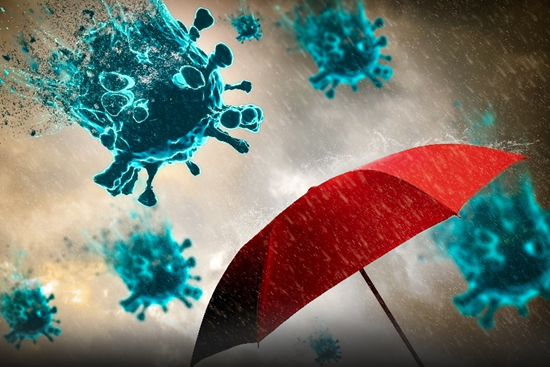Monsoon Health Alert for Pune: Sharp Rise in Waterborne Infections – Here’s How to Stay Safe

Monsoon Health Alert for Pune: Sharp Rise in Waterborne Infections – Here's How to Stay Safe
As the monsoon clouds hover over, they’re not just bringing welcome showers but also an unwelcome surge in waterborne diseases. From cholera and diarrhea to typhoid and jaundice, cases are climbing steadily across the city. Local health officials are urging residents to take serious precautions, particularly with the water they drink and the food they eat.
The Pune Municipal Corporation (PMC) has issued an important advisory: make sure to boil drinking water, let it cool, and avoid consuming uncovered street food. These simple steps could make a big difference in preventing illness during this critical season.
What’s Causing the Rise in Illnesses?
Over the past few weeks, both government-run and private hospitals have seen a notable uptick in patients being treated for waterborne infections. Areas under construction, low-lying regions where water tends to collect, and densely populated neighborhoods like slums are particularly vulnerable.
Health experts attribute the surge to three major factors:
- Unclean drinking water
- Stagnant rainwater near residential areas
- Poor hygiene and sanitation
Such conditions create the perfect environment for disease-causing microbes to thrive and spread.
Beware of Leptospirosis – A Hidden Monsoon Threat
One of the more concerning diseases making a return this season is leptospirosis. This bacterial infection enters the body through open wounds or cuts, especially when walking through stagnant, contaminated rainwater.
Common symptoms of leptospirosis include:
- High fever
- Redness in the eyes
- Headache
- Joint and muscle pain
- Nausea
- Stomach ache
PMC health officer Dr. Neena Borade has warned that early detection and medical intervention are critical. Ignoring symptoms or delaying treatment can lead to complications.
Other Common Symptoms to Watch Out For
Contaminated water and uncovered or improperly handled food can lead to several gastrointestinal and infectious diseases. Keep an eye out for:
- Loose motions (diarrhea)
- Vomiting
- Nausea
- Abdominal pain
- Signs of jaundice
These symptoms are not only uncomfortable but can also lead to dehydration and severe complications if neglected.
Health Department’s Recommendations – Stay Protected
To reduce the risk of falling ill this monsoon, the PMC and medical experts recommend the following:
- Boil and filter water before drinking
- Avoid eating uncovered or roadside food items
- Wash hands with soap after using the toilet and before meals
- Avoid walking through rainwater, especially if you have any cuts or wounds
- Keep your home and surroundings clean and dry
- Seek medical help immediately if any symptoms appear
Dr. Borade also stressed the importance of raising awareness, especially in vulnerable communities and construction zones, where access to clean water and sanitation is limited.
Prevention Starts at Home
The increase in diseases like cholera, typhoid, and jaundice—up by nearly 20–25% compared to usual rates—should not be taken lightly. These are not just statistics; they reflect the lived reality of many families across Pune dealing with preventable illnesses.
Monsoon doesn’t have to mean sickness. By taking small but consistent precautions, we can all enjoy the season safely.









